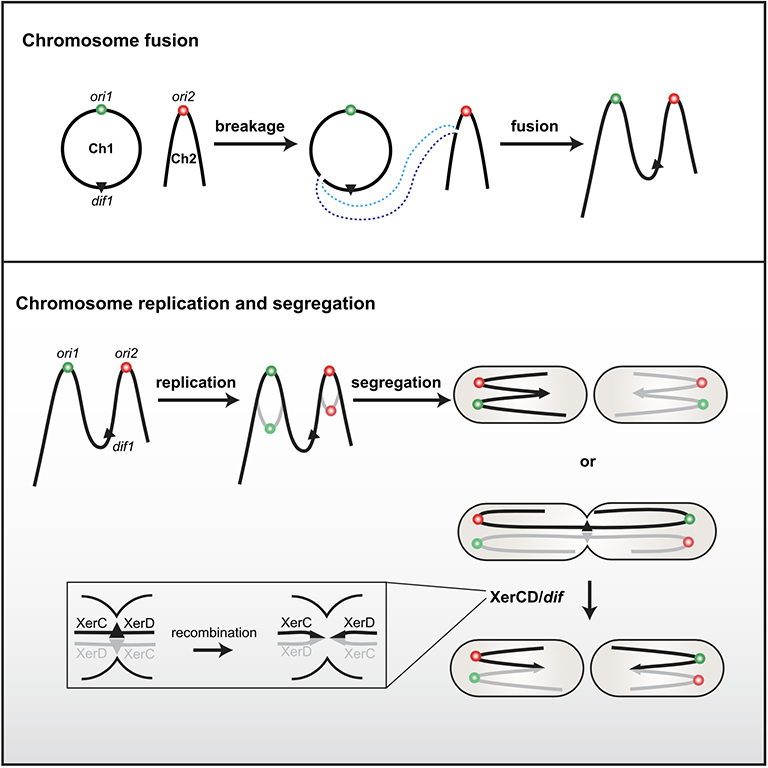Unlike eukaryotes and archaea, which have multiple replication origins on their chromosomes, bacterial chromosomes usually contain a single replication origin.
In a recent paper published in Current Biology, researchers from the lab of Xindan Wang (an assistant professor in Indiana University College of Arts and Sciences’ Department of Biology) discussed their discovery of a dicentric linear bacterial chromosome with two replication origins. The chromosome resulted from the fusion of the circular and linear chromosomes in the plant pathogen, Agrobacterium tumefaciens.
The authors found that this stably-maintained fusion chromosome contains two active replication origins and requires two independent partitioning systems; however, independent segregation of two origins renders the dicentric chromosome broken when two origins on the same chromosome migrate to opposite poles. The team showed that site-specific recombinases XerC and XerD are required to resolve this situation, ensuring stable maintenance of this dicentric chromosome.




 The College of Arts
The College of Arts